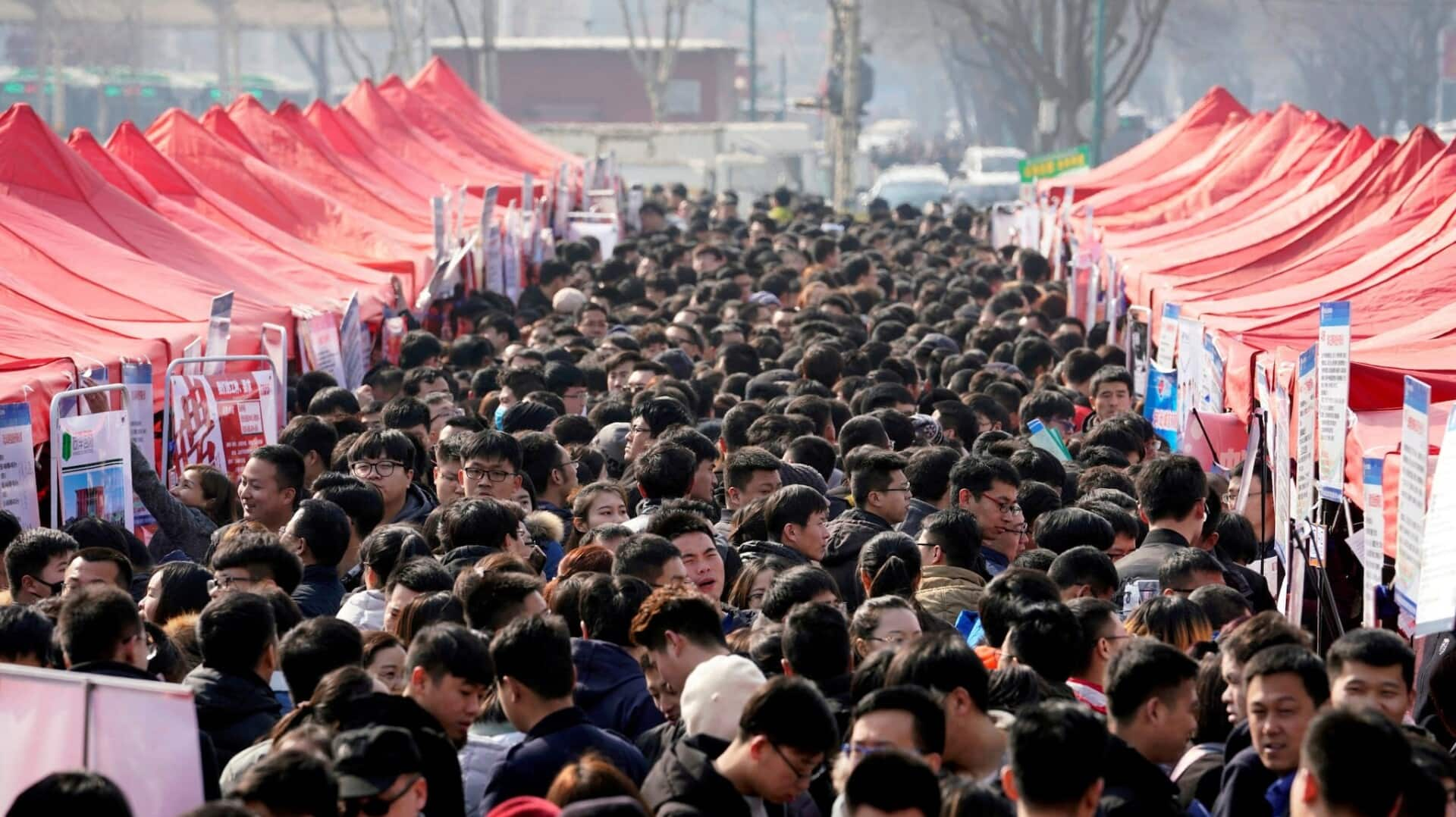
Meet 'rotten-tail kids': China's young social class struggling with unemployment
What's the story
China is currently grappling with a significant increase in youth unemployment, forcing many college graduates into low-paying jobs or dependency on their parents' pensions. This situation has led to the emergence of a new social class known as "rotten-tail kids." The term has gained popularity on social media this year, drawing comparisons with "rotten-tail buildings," a phrase used to describe the millions of unfinished homes that have been a drain on China's economy since 2021.
Job hunt
Record number of graduates face challenges
A record number of college graduates are struggling to find employment in a job market, that has been hit hard by COVID-19-related disruptions and regulatory clampdowns on finance, tech, and education sectors. The unemployment rate for Chinese youth aged 16-24 crossed the 20% mark for the first time in April 2023, reaching an all-time peak of 21.3% in June 2023. This led officials to temporarily halt the data series to reevaluate how figures were calculated.
Unemployment rate
Youth unemployment remains a persistent issue
Youth unemployment continues to be a significant issue in China, with the revised jobless rate reaching a 2024 high of 17.1% in July. This comes as almost 12 million college students graduated this summer, amid an economy still reeling from its real estate crisis. President Xi Jinping has emphasized that securing jobs for young people is a top priority, and the government is exploring more avenues for youth to connect with potential employers, such as job fairs.
Job prospects
'Rotten-tail kids' struggle to secure jobs
Many Chinese college graduates are finding it increasingly difficult to secure jobs that offer good prospects and upward social mobility, according to Yun Zhou, an assistant professor of sociology at the University of Michigan. Some unemployed youth have turned =to relying on their parents' retirement pensions and savings. Even those with post-graduate degrees are struggling in this challenging economy, with their qualifications often failing to guarantee them employment.
Personal experiences
Graduates share their struggles
Zephyr Cao, a master's degree holder from China Foreign Affairs University, stopped looking for full-time work after being offered lower-than-expected wages. Amada Chen, a recent graduate from Hubei University of Chinese Medicine, quit her sales job at a state-owned enterprise due to an unhealthy work culture and unrealistic expectations. Despite sending over 130 job applications, she was mostly offered sales or e-commerce related positions.
Education expansion
China's higher education expansion and job market mismatch
In 1999, China significantly increased university enrollment to create a better-educated workforce for its rapidly growing economy. However, the supply of graduates has consistently outpaced the availability of jobs. A study published in June by China Higher Education Research predicts that the supply of students will surpass demand from 2024 through 2037. After this period, falling fertility rates are expected to significantly reduce the gap.